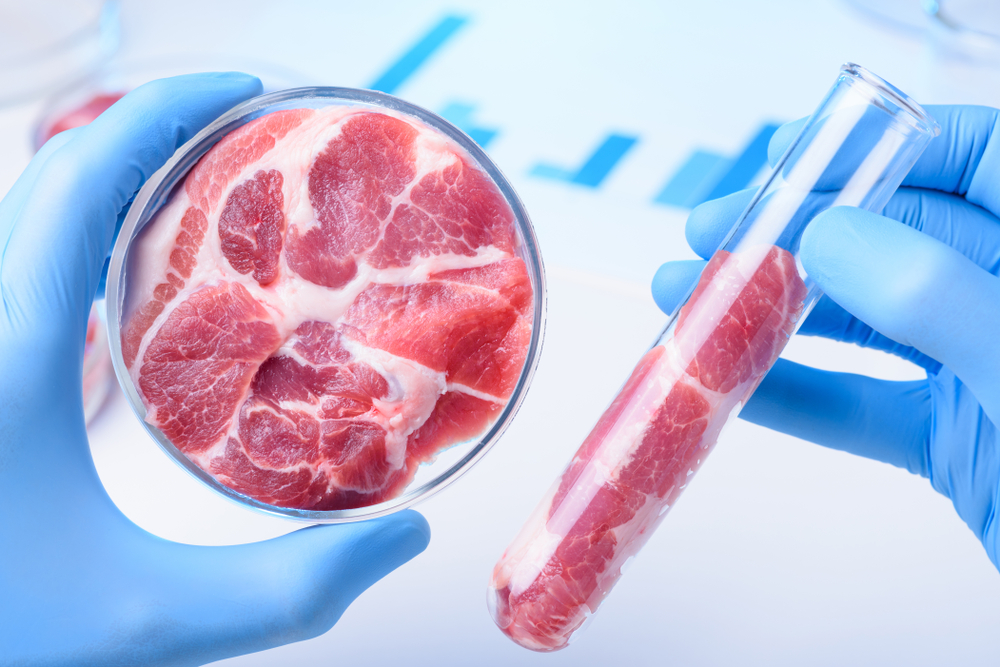
Meat cultivated from cells — with no need to raise and kill an animal — is now a reality. More than 150 startup companies are chasing an ambitious goal: producing meat that doesn’t require raising and killing animals, that is affordable, and tastes and feels like the meat we eat now. They are part of a young industry aiming to use cell biology to reduce the environmental impact of the world’s ever-increasing demand for meat and change global protein production the way electric cars are shaking up the auto industry.
1.What purpose are the young companies pursuing?
A To bring down the price of animal meat.
B To make the meat taste better.
C To protect the Earth’s environment.
D To change the way electric cars work.
解析:选C。C 细节理解题。根据第一段最后一句“They are part of a young industry aiming to use cell biology to reduce the environmental impact of the world’s ever-increasing demand for meat and change global protein production the way electric cars are shaking up the auto industry.”这是一个年轻产业的一部分,旨在利用细胞生物学来减少全球不断增长的肉类需求对环境的影响,并改变全球蛋白质生产的方式,就像电动汽车正在撼动汽车工业一样。即这些年轻的企业希望保护地球环境。故选C。
2.What message does Yaakov Nahmias convey in Para. 2?
A Some areas are rich in meat.
B People consume lots of meat.
C Less meat should be produced.
D Meat is bad for people’s health.
解析:选B。B 推理判断题。根据第二段他说的话“We are addicted to meat as a species. It’s part of our evolution. It’s part of our culture”作为一个物种,我们对肉类上瘾了,这(吃肉)是我们进化的一部分,是我们文化的一部分;“we thought about quantity rather than the environment”我们考虑的是数量而不是环境。由此可知,他认为人类在消耗大量的肉类。故选B。
3.What does the underlined word “hindrance” mean?
A Advantage.
B Opportunity.
C Influence.
D Obstacle.
解析:选D。D 词义猜测题。根据划线词所在句的前面部分内容“This meat is expensive to make. There are scientific challenges, such as learning how to mimic the complex structure of steak.”这种肉做起来很贵。在科学上也有挑战,比如学习如何模仿牛排的复杂结构。这些都是制造人造肉过程中遇到的阻碍,而政府的监管又是另一个阻碍。故选D。
4.What’s Oren’s attitude towards “lab-grown” meat?
A Unclear.
B Negative.
C Positive.
D Curious.
解析:选B。B 推理判断题。根据最后一段中的“Even Nahmias’ 10-year-old son Oren says he will only eat traditional meat.”就连Nahmia 10岁的儿子Oren也表示,他将只吃传统肉类,即他对人造肉持消极态度。故选B。